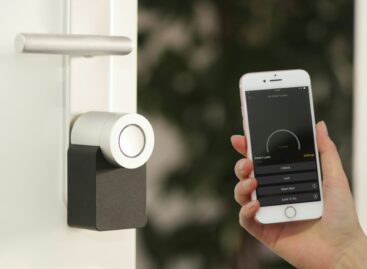5 tips for protecting your smart home
The world of smart homes is gaining momentum, as internet-connected devices – such as smart TVs, security cameras, smart light bulbs and home appliances – make our everyday lives more convenient and efficient. However, while IoT (Internet of Things) devices are revolutionizing our lives, they also bring new security risks that should not be ignored. According to experts at MediaMarkt, the conscious use of smart devices and the right security settings are essential to prevent digital threats.
 One of the favorite targets of cybercriminals is the often unprotected network of internet-connected devices. An improperly configured internet router or security camera can be as easy to access as leaving your door open to burglars. According to a 2023 international survey, 30 percent of hacked smart devices did not even have a simple but unique password set, so hackers were able to break in in a matter of seconds. This statistic is alarming in itself, but the consequences could be even more serious. In some cases, attackers not only gain access to the network, but can also control devices or access sensitive personal data. Imagine someone remotely disabling your alarm or viewing your security camera footage!
One of the favorite targets of cybercriminals is the often unprotected network of internet-connected devices. An improperly configured internet router or security camera can be as easy to access as leaving your door open to burglars. According to a 2023 international survey, 30 percent of hacked smart devices did not even have a simple but unique password set, so hackers were able to break in in a matter of seconds. This statistic is alarming in itself, but the consequences could be even more serious. In some cases, attackers not only gain access to the network, but can also control devices or access sensitive personal data. Imagine someone remotely disabling your alarm or viewing your security camera footage!
How can we protect ourselves effectively? 5 simple steps:
In order to reduce the risks, MediaMarkt experts recommend the following security measures:
Set strong, unique passwords: Using default passwords is a serious security vulnerability, so you should use a unique, strong password for each smart device. Use lowercase and uppercase letters, numbers and special characters!
Regular software updates: Outdated systems often contain known security vulnerabilities that manufacturers fix with updates. It is worth setting up automatic updates if possible. If there is no automatic update, check them manually regularly!
Enable two-factor authentication (2FA): If your device or related app supports it, it’s a good idea to enable this feature, as it adds an extra layer of protection against unauthorized access. This means that in addition to your password, you’ll need to provide another method of identification (e.g., a code sent via SMS).
Separate Wi-Fi network (guest network) for smart devices: If possible, it’s a good idea to connect your smart devices to a separate network (called a guest network) to reduce the risk of a compromised device gaining access to other devices that handle more sensitive data (e.g., your computer or phone).
Choose products from trusted manufacturers: Devices from unknown, cheaper brands often lack adequate security protocols, so it’s a good idea to choose products from trusted manufacturers that regularly update their software and pay special attention to security.
“Smart devices make everyday life more convenient, but it is also worth keeping security aspects in mind”
– Róbert Hankusz, Head of IT at MediaMarkt. “With a little attention and changing a few basic settings, we can significantly increase the security of our smart home, thus avoiding data theft and attacks on our network.”
Related news
ESET: The era of artificial intelligence-driven ransomware has arrived
🎧 Hallgasd a cikket: Lejátszás Szünet Folytatás Leállítás Nyelv: Auto…
Read more >Hungarians view smart homes as an investment – MediaMarkt research
🎧 Hallgasd a cikket: Lejátszás Szünet Folytatás Leállítás Nyelv: Auto…
Read more >









